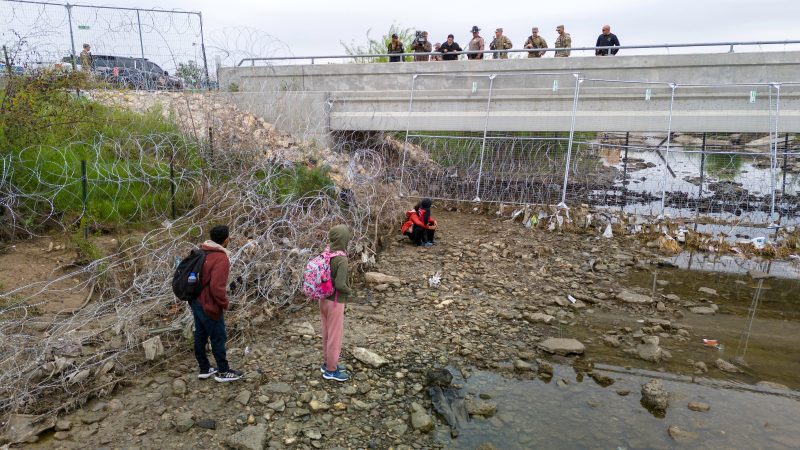The recent decision by the Supreme Court to allow Texas to arrest and deport migrants has sparked a wave of controversy and debate across the country. This ruling comes as a significant development in the ongoing immigration debate in the United States, raising important questions about the limits of state authority and the treatment of migrants at the border.
One of the main arguments in favor of the Supreme Court’s decision is the need to enforce immigration laws and secure the border. Proponents of the ruling argue that allowing Texas to arrest and deport migrants is essential to maintaining law and order and protecting national security. They believe that this decision will deter illegal immigration and send a strong message to those who attempt to cross the border unlawfully.
However, critics of the decision have raised serious concerns about the impact on migrants and their rights. Many argue that the decision will only exacerbate the humanitarian crisis at the border, leading to increased tensions and potential human rights violations. Critics also point out that the decision could create confusion and inconsistency in the enforcement of immigration laws, as different states may have varying approaches to dealing with migrants.
Another key issue raised by the Supreme Court’s decision is the role of states in immigration enforcement. While immigration is primarily a federal responsibility, states like Texas have taken a more proactive stance in recent years, passing laws and policies aimed at cracking down on illegal immigration. This has led to a complex legal landscape, with conflicting mandates and jurisdictions that often result in legal challenges and uncertainty.
The Supreme Court’s decision to allow Texas to arrest and deport migrants highlights the need for comprehensive immigration reform at the federal level. Instead of relying on piecemeal state actions, there is a growing consensus that a more coordinated and systematic approach is needed to address the root causes of illegal immigration and provide a pathway to citizenship for undocumented migrants already living in the country.
In conclusion, the Supreme Court’s decision to clear the way for Texas to arrest and deport migrants has far-reaching implications for immigration policy and enforcement in the United States. While some argue that this decision is necessary to uphold the rule of law and protect national security, others caution that it could lead to a worsening humanitarian crisis and further exacerbate tensions at the border. Ultimately, this ruling underscores the urgent need for a more comprehensive and coherent approach to immigration reform that addresses the complex challenges facing the nation.


























